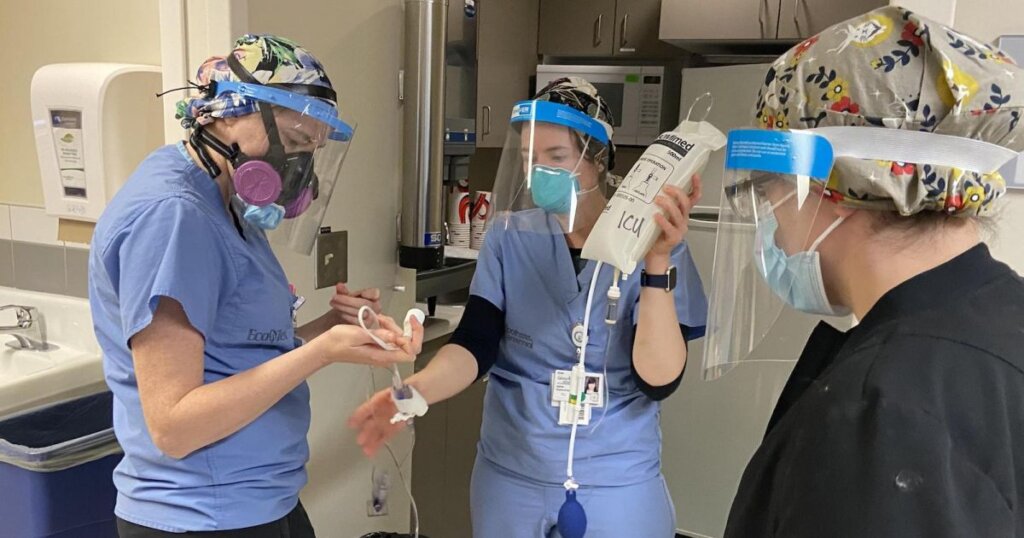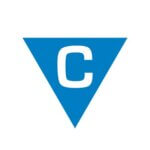Home » Driving innovation through procurement access
Driving innovation through procurement access

An elephant might have a better memory, but there’s nothing like a HIPPO to help you learn large.
The HIPPO in question is an e-learning platform built by Waterloo-based Axonify and customized for staff at Grand River Hospital in Kitchener. The name HIPPO was chosen by the hospital, whose mascot happens to be a cartoon hippopotamus. They also gave the e-learning initiative a tagline: learning large.
The playful moniker fits well with Axonify’s game-based e-learning solution, which is designed to deliver and reinforce training material for employees with busy front-line jobs, such as nurses.
The platform provides users with study material in short bursts of three to five minutes a day. Employees can complete their daily learning on a mobile device or a computer, either at the start of a shift or anytime during the workday. The learning is reinforced through gamification techniques such as quizzes, contests and friendly competitions between departments.
“Delivering key training content through game play helps reinforce the learning covered in a fun manner and, through HIPPO, the content is fully customizable for the needs of our organization as we test run this product within our hospital,” Carla Girolametto, Grand River’s Director of Innovation and Research, said in a recent news release.
The Axonify deployment at the hospital is part of a national strategy aimed at driving innovation in health care by helping Canadian companies gain greater access to public-sector procurement.
“This partnership is a perfect example of what we need more of in Canada to build our tech ecosystem and strengthen our supply chains: sourcing domestic solutions to domestic challenges and opportunities,” said Chris Albinson, CEO and President of Communitech.
The Waterloo Region tech organization has teamed up with the Coordinated Accessible National Health Network, known as CAN Health, to connect hospitals and other public health-care institutions with leading Canadian tech innovators.
CAN Health is a federally funded, Canada-first approach to technology adoption. It aims to harness the purchasing power of health-care organizations – a combined $40 billion within the CAN Health Network alone – to encourage innovation in the country’s health-care system and to support Canadian tech companies.
The adoption of innovative technologies by Canadian hospitals and publicly funded health-care providers has long been hampered by procurement regulations and policies that create hurdles for Canadian suppliers, according to CAN Health and industry leaders.
“Efficient and effective training and preparation for frontline staff across the health system is more critical than ever,” Dr. Dante Morra, Chair of the CAN Health Network, said recently. “Our goal is to provide health-care organizations like Grand River Hospital with access to proven solutions that will ultimately improve patient care and enable Canadian tech companies like Axonify to scale and succeed at home and abroad.”
In an interview with Tech News, Morra said that the CAN Health Network brings the demand side of the equation – buyers – while Communitech brings the supply side – tech companies.
“It's super-powerful because it's a beautiful, virtuous circle,” he said.
CAN Health has a network of 22 “Edges” across Canada. An Edge can be an individual hospital, a group of hospitals or a related health-care organization. Members must be an operational organization that buys goods and services, as opposed to an association or government agency that simply oversees things. Edge members must also be committed to driving innovation in health care by opening up the procurement process to Canadian companies.
“Edges aren’t for everyone,” said Morra. “I like to ask, ‘Are you fully committed to Canada winning, and becoming prosperous and leading a new health-care economy?’”
Individual Edges take on a project that involves working with a Canadian tech company to solve a problem that other health-care organizations might also face. CAN Health uses its federal funding to help each Edge with certain costs associated with getting a project running, such as procurement work, legal agreements and IT integration.
“That's why it's called an Edge, because it's like the receptor for the company coming in,” said Morra.
Successful projects are communicated to other Edge members through monthly group calls, which set the stage for the tech companies to sell their solutions to other health-care organizations that face the same challenges.
For Canadian tech companies, the CAN Health process gives them a chance to prove the value of their products and then build on that success nationally and internationally.
“What we do is set the conditions for a company to solve a problem and then for the network to buy it,” said Morra. “That’s the real value.”
For health-care organizations, the process helps them solve real problems, discover proven solutions and use their resources more effectively.
“Do you know how nice it is to actually have a good Canadian company solve my problem?” said Morra, who also serves as Chief of Staff at Trillium Health Partners in Mississauga. “Because then I actually have more money to take care of people.”
The Grand River Hospital project allows Axonify to collect data, develop health-care-specific learning material and go through a verification process with CAN Health. Once completed, CAN Health will recommend Axonify to its network of Edges.
While getting the CAN Health stamp of approval is valuable to companies, Morra said the real benefit is having hospital professionals tell their peers how great the product is.
“The Edge cheers for the company across the network,” said Morra. “That’s a big advantage.”
Founded in 2011, Axonify has made impressive in-roads with the retail, grocery and pharmaceutical industries. Its clients include heavyweights such as Walmart, Bloomingdale’s, Merck and Johnson and Johnson.
Axonify CEO Carol Leaman, along with co-founder and Chief Revenue Officer Christine Tutssel, first offered the company’s e-learning platform to Grand River Hospital and neighbouring St. Mary’s Hospital early in the COVID-19 pandemic to provide staff with training and information about new coronavirus protocols.
Through CAN Health, Axonify and Grand River extended the relationship this fall with a program to help nurses and other clinical staff prepare for an Accreditation Canada survey in October. The survey, held every few years, is an external peer review of nationally agreed-upon standards for patient care and safety.
The project is a promising springboard for Axonify to sell its e-learning services to other health-care organizations across Canada and, eventually, North America, said Andrew Jackson, Vice-President of Customer Experience.
“The project that we have going with CAN Health will run until the end of March,” Jackson said. “That’s where the procurement discussion takes place, where CAN Health can (give) a stamp of approval to say, ‘We have approved all of the pricing, all of the packaging, all of the results that Axonify accomplished with Grand River, and we are recommending this platform to the rest of the Edges.’”
Axonify provides a library of universal learning content to its customers, relevant to their specific industries. It also works with clients to develop customized content and to “Axonify” a client’s existing learning materials.
In addition to teaching front-line workers about a specific protocol or task, the Axonify model of learning – short segments of game-based material – is effective at reinforcing and retaining knowledge when used over the long term, Jackson said.
This reduces employee stress when it comes time for regularly scheduled knowledge tests, such as the Accreditation Canada surveys that occur in health-care settings on a regular cycle.
“The hospital was interested in having the nurses keep their high level of knowledge and retain it on an ongoing basis so that when accreditation happens, it’s not a stressful event on the people, it’s something that just occurs as part of their day-to-day work,” Jackson said.
Grand River Hospital completed the most recent clinical Accreditation Survey on Oct. 27. It has made the HIPPO platform available to all departments and staff. Going forward, it plans to use the e-learning tool across the organization to augment other learning processes.
Morra said he is “super-excited” about the CAN Health partnership with Communitech. He is hopeful that the model pioneered by CAN Health can be replicated in other sectors.
“This is the way Canada competes – by bringing the country together and using the market to propel technology. Everybody has said that this has been a problem, but nobody’s created a solution to the demand side. We’ve done that.”
Communitech
https://communitech.ca
"Communitech helps tech-driven companies start, grow and succeed. Communitech was founded in 1997 by a group of entrepreneurs committed to making Waterloo Region a global innovation leader. At the time it was crazy talk, but somehow this community managed to pull it off. Today, Communitech is a public-private innovation hub that supports a community of more than 1400 companies — from startups to scale-ups to large global players. Communitech helps tech companies start, grow and succeed in three distinct ways: - Communitech is a place – the center of gravity for entrepreneurs and innovators. A clubhouse for building cool shit and great companies. - Communitech delivers programs – helping companies at all stages with access to capital, customers and talent. We are here to help them grow and innovate. - Communitech partners in building a world-leading ecosystem – making sure we have all the ingredients (and the brand) to go from a small startup to a global giant."


